Related Research Articles

The Bow Street Runners were the law enforcement officers of the Bow Street Magistrates' Court in the City of Westminster. They have been called London's first professional police force. The force originally numbered six men and was founded in 1749 by magistrate Henry Fielding, who was also well known as an author. Bow Street Runners was the public's nickname for the officers although the officers did not use the term themselves and considered it derogatory. The group was disbanded in 1839 and its personnel merged with the Metropolitan Police. The Metropolitan Police Detective Agency traces their origin back to them.
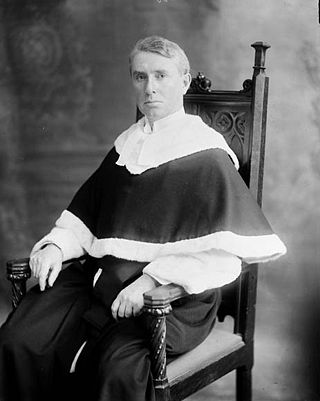
The term magistrate is used in a variety of systems of governments and laws to refer to a civilian officer who administers the law. In ancient Rome, a magistratus was one of the highest ranking government officers, and possessed both judicial and executive powers. In other parts of the world, such as China, a magistrate was responsible for administration over a particular geographic area. Today, in some jurisdictions, a magistrate is a judicial officer who hears cases in a lower court, and typically deals with more minor or preliminary matters. In other jurisdictions, magistrates are typically trained volunteers appointed to deal with criminal and civil matters in their local areas.
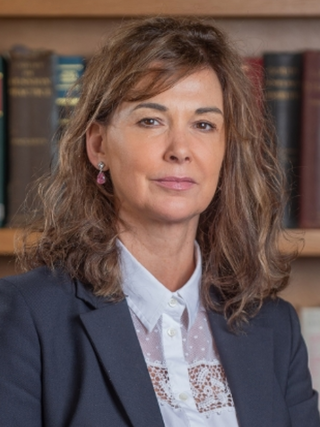
His Majesty's Advocate, known as the Lord Advocate, is the chief legal officer of the Scottish Government and the Crown in Scotland for both civil and criminal matters that fall within the devolved powers of the Scottish Parliament. They are the chief public prosecutor for Scotland and all prosecutions on indictment are conducted by the Crown Office and Procurator Fiscal Service in the Lord Advocate's name on behalf of the Monarch.
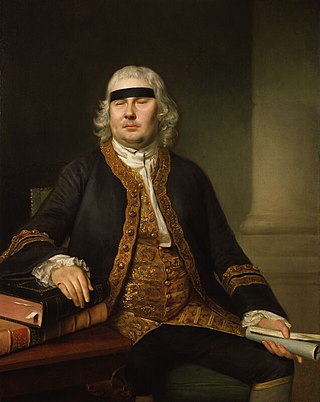
Sir John Fielding was a notable English magistrate and social reformer of the 18th century. He was also the younger half-brother of novelist, playwright and chief magistrate Henry Fielding. Despite being blinded in a naval accident at the age of 19, John set up his own business and, in his spare time, studied law with Henry.
Nicolas Christopher Henry Browne-Wilkinson, Baron Browne-Wilkinson, PC was a British judge who served as a Lord of Appeal in Ordinary from 1991 to 2000, and Senior Lord of Appeal in Ordinary from 1998 to 2000.
In the United Kingdom, the Judge Advocate General and Judge Martial of all the Forces is a judge responsible for the court-martial process within the Royal Navy, British Army and Royal Air Force. As such the post has existed since 2008; prior to this date the Judge Advocate General's authority related to the Army and the RAF while the Judge Advocate of the Fleet was the equivalent with regard to the Royal Navy.
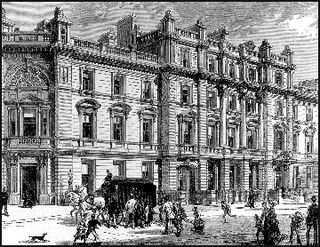
Bow Street Magistrates' Court became one of the most famous magistrates' court in England. Over its 266-year existence it occupied various buildings on Bow Street in Central London, immediately north-east of Covent Garden. It closed in 2006 and its work moved to a set of four magistrates' courts: Westminster, Camberwell Green, Highbury Corner and the City of Westminster Magistrates' Court. The senior magistrate at Bow Street until 2000 was the Chief Metropolitan Stipendiary Magistrate.
Chief magistrate is a public official, executive or judicial, whose office is the highest in its class. Historically, the two different meanings of magistrate have often overlapped and refer to, as the case may be, to a major political and administrative officer or a judge and barrister.
Senior District Judge Timothy Henry Workman is a British retired judge, a long-term stipendiary magistrate who served as Senior District Judge for England and Wales.
Stipendiary magistrates were magistrates that were paid for their work. They existed in the judiciaries of the United Kingdom and those of several former British territories, where they sat in the lowest-level criminal courts.

Lauritz Weidemann was a Norwegian judge, civil servant and politician. He served as county governor for almost 35 years, participated at the Norwegian Constituent Assembly in 1814, and was a member of the Parliament of Norway for several periods.
The High Sheriff of Roscommon was the British Crown's judicial representative in County Roscommon, Ireland from 1575 until 1922, when the office was abolished in the new Free State and replaced by the office of Roscommon County Sheriff. The sheriff had judicial, electoral, ceremonial and administrative functions and executed High Court Writs. In 1908, an Order in Council made the Lord-Lieutenant the Sovereign's prime representative in a county and reduced the High Sheriff's precedence. However the sheriff retained his responsibilities for the preservation of law and order in the county. The usual procedure for appointing the sheriff from 1660 onwards was that three persons were nominated at the beginning of each year from the county and the Lord Lieutenant then appointed his choice as High Sheriff for the remainder of the year. Often the other nominees were appointed as under-sheriffs. Sometimes a sheriff did not fulfil his entire term through death or other event and another sheriff was then appointed for the remainder of the year. The dates given hereunder are the dates of appointment. All addresses are in County Roscommon unless stated otherwise.
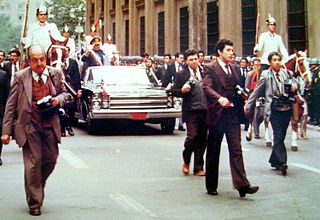
R v Bow St Metropolitan Stipendiary Magistrate [2000] 1 AC 61, 119 and 147 is a set of three UK constitutional law judgments by the House of Lords that examined whether former Chilean dictator Augusto Pinochet was entitled to claim state immunity from torture allegations made by a Spanish court and therefore avoid extradition to Spain. They have proven to be of landmark significance in international criminal law and human rights law.
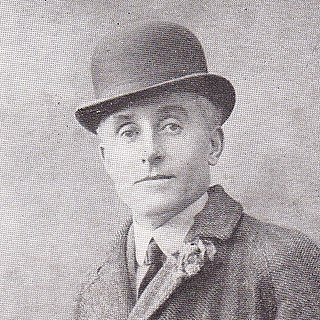
Sir Henry Chartres Biron was a British barrister who was later chief magistrate of the metropolitan police courts. He presided over the trial for obscenity of Radclyffe Hall's lesbian novel, The Well of Loneliness.
Sir John Dickinson was a British barrister who was chief magistrate of the Metropolitan Police Courts from 1913 until 1920. On his retirement he was replaced by Sir Chartres Biron.
Howard Charles Fraser Riddle. is a British retired judge who was the Senior District Judge for England and Wales. He was appointed to that office in 2010.

Francis Burgess (1793–1864) was an English barrister, the first police commissioner for Birmingham, England, and subsequently chief police magistrate of Van Diemen's Land, and served as a Member of the Van Diemen's Land Legislative Council.
References
- David J. Cox, A Certain Share of Low Cunning: A History of the Bow Street Runners, 1792-1839 (2010)
- Frank Milton, The English Magistracy (1967)
- https://www.judiciary.uk/about-the-judiciary/who-are-the-judiciary/judicial-roles/judges/chief-magistrate/